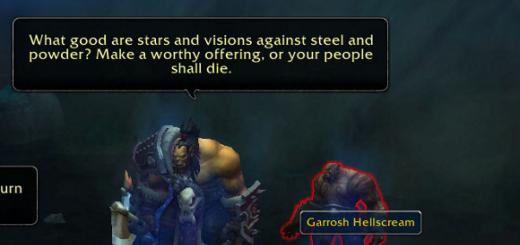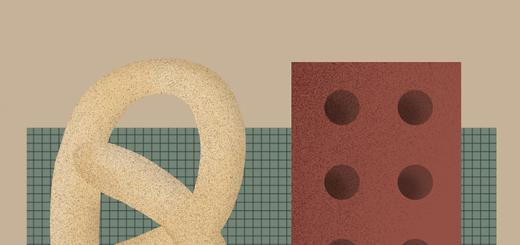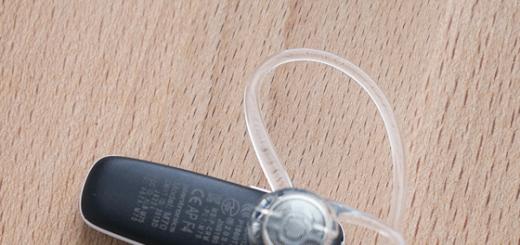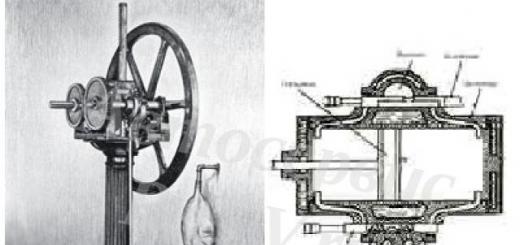Alois Hitler
Alois Hitler is a far less sympathetic figure. He was an illegitimate child and therefore bore at first the name of his mother - Schicklgruber - and only much later changed it to the name Hitler. He did not receive any maintenance from his parents and did everything in his life himself. Hard work and self-education helped him go from a small employee of the Austro-Hungarian customs to the "highest rank", which gave him the unconditional status of a respected bourgeois. Thanks to his modest life and ability to save, he saved so much money that he was able to buy an estate and still leave a decent fortune to the family, which, even after his death, provided his wife and children with a secure existence. Of course, he was selfish, he was not bothered by the feelings of his wife, however, in this respect, he was probably a typical representative of his class.
Alois Hitler was a lover of life; he was especially fond of wine and women. He was not a womanizer, but the narrow framework of bourgeois morality was too tight for him. He liked to drink a glass of wine and did not deny himself this, but he was not at all a drunkard, as was reported in some publications. But the main thing, in which the life-affirming orientation of his nature was manifested, was his passion for beekeeping. He usually spent most of his leisure time near the hives. This passion manifested itself early; creating his own apiary became a dream of his whole life. Finally, the dream came true: he bought a peasant farm (at first too big, then smaller), and by the end of his life he equipped his yard in such a way that he gave him great joy.
Alois Hitler is often portrayed as a cruel tyrant - probably in order to make it easier to explain the character of his son. But he was not a tyrant, although he was an authoritarian person; he believed in such values as duty and honor, and considered it his duty to determine the fate of his sons before they reached maturity. As far as is known, he never applied to Adolf corporal punishment; he reproached him, argued with him, tried to explain to him what was good and what was bad for him, but he was not that formidable father figure who inspires his son not only with respect, but with horror. As we will see, Alois early noticed the growing irresponsibility and flight from reality in his son, which led the father to rebuke Adolf more than once, warn of the consequences and try to reason with his son. Much indicates that Alois Hitler was quite tolerant of people, he was not rude, he never behaved defiantly, and in any case he was not a fanatic. This image is also consistent with Political Views. He showed great interest in politics, holding liberal, anti-clerical views. He died of a heart attack while reading a newspaper, but his last words expressed indignation against the "blacks", that is, the reactionary clerics.
How to explain that two normal, respectable and non-destructive people gave birth to such a "monster", which became Adolf Hitler?
From the book of Adolf Hitler. Clinical case of necrophilia. author Fromm Erich SeligmannErich Fromm Adolf Hitler. A clinical case of necrophilia Fromm E. The Anatomy of Human Destructiveness Publisher: Progress 1992. When a psychoanalyst studies the biography of his client, he always tries to get an answer to two questions: 1) What are the main driving forces in a person’s life, what
From the book of Adolf Hitler. Clinical case of necrophilia. author Fromm Erich SeligmannClara Hitler The most powerful influence on a child is not one or another event in life, but the character of the parents. Those who believe in the simplified formula of everyday consciousness - "the apple does not fall far from the apple tree" will be amazed to learn the facts of the life of Hitler and his family: for both father and
From the book social impact author Zimbardo Philip GeorgeMilgram Scenario: Would you electrocute a person if Hitler asked you to? The best way to describe Milgram's research would be the subject's point of view. Imagine that after reading an ad in a newspaper, you sign up to participate in
From the book The Psychology of Domination and Subordination: A Reader author Chernyavskaya A. G.Hitler - a psychopath and a criminal? In his forensic psychiatric study of the Hitler case, de Boor used mainly two scientific methods, allowing through the analysis of various characteristic features get the most objective assessment personalities from a point
From the book Crimes in Psychiatry [Victims of experiments and not only...] author Fadeeva Tatyana BorisovnaAdolf Hitler and the rise of Nazism I swear to you, Adolf Hitler, my leader, loyalty and courage. I promise you and all whom you appoint as my superiors, to obey until death. (from the text of the oath) Cherishing dreams of the triumph of National Socialism in the world
From the book Anatomy of Human Destructiveness author Fromm Erich Seligmann From the book The Ins and Outs of Love [Psychoanalytic epic] author Menyailov Alexey AlexandrovichChapter Ten Hitler and His Women There is such a country in the world - Germany. All its inhabitants have heard about Goethe, Wagner, Bach and German philosophy, and therefore consider themselves a cultural phenomenon of a planetary scale. Neighboring this country of cultured people, in Austria, April 20, 1889
From the book The Battle of Psychics. How it works? author Vinogradov Mikhail ViktorovichPage 2
Alois Hitler, the Fuhrer's father, was apprenticed to a shoemaker when he was young. But he did not want to sew shoes and became a customs official, i.e., according to the concepts of people of his circle, he "made it into the people." At 58, Alois retired relatively early. He was restless - all the time he changed his place of residence, one town to another. But in the end he settled in Leonding, a suburb of Linz.
Alois Schicklgruber, aka Hitler, was married three times: the first time to a woman who was fourteen years older than him. The marriage was unsuccessful. Alois went to another woman, whom he married after the death of his first wife. But soon she died of tuberculosis. For the third time, he married a certain Clara Pelzl, who was twenty-three years younger than her husband. In order to formalize this marriage, it was necessary to seek permission from the church authorities, since Clara Pelzl was obviously in close relationship with Alois. Be that as it may, Clara Pelzl became the mother of Adolf Hitler. The first marriage of Alois was childless, from the second marriage two children survived - Alois and Angela, from the third also two - the future Fuhrer of Germany and a certain Paula, an unremarkable woman who outlived her brother. In total, Alois Hitler had seven children, one of them out of wedlock and two born immediately after marriage. In Leonding, in his own house with a garden, Alois Hitler lived until his death. Adolf Hitler was the third child from his father's third marriage. The Hitler family was unfriendly. And Adolf Hitler himself treated his relatives extremely coldly, in particular, his sister Paula and half-brother Alois. The only person to whom Hitler had kinship feelings was his half-sister Angela Hitler, by her husband Angela Raubal. When Hitler became an influential person in Bavaria, he discharged the widowed Angela by that time and made her his housekeeper. Angela Raubal ran the household of Hitler's bachelor both in Munich and at his residence in Berchtesgaden, in the Bavarian Alps. Hitler had an affair with Angela's daughter, also Angela (Geli) Raubal.
Adolf's brother, Alois Hitler, served five months in prison at the age of 18 for theft. Being released, he was caught again two years later, this time he was imprisoned for eight months. In 1929, that is, already at the time when Adolf Hitler began to come into power, Alois was tried for bigamy. Then he went to England, started a new family there, left her and returned to his homeland. IN Nazi Germany Alois settled down and opened a thriving beer bar in Berlin, which was eagerly visited by the Nazi brethren and foreign journalists - the latter because they hoped to find out from Alois some details about Adolf Hitler. But Alois knew how to keep his mouth shut. He no doubt knew that several of Adolf Hitler's friends, who had rendered the future Fuhrer services at the beginning of his journey and showed excessive talkativeness, ended badly. The SS men removed them without much noise. According to foreign correspondents, Alois Hitler was a portly man in the thirties, a typical German innkeeper.
From the point of view of the law, there is nothing reprehensible in Hitler's genealogy. None of his ancestors was a robber with high road, neither a murderer nor a recidivist thief. But in a society created by the nationalists and their Führer, Hitler's genealogy could arouse great suspicion. The Fuhrer's grandfather remained unknown. But be that as it may, nothing can be said with complete certainty about Hitler's grandfather. In the "Third Reich" this could play a fatal role. What if one "quarter" of the Fuhrer would turn out to be "non-Aryan"? A non-Aryan quarter could crush any career!
According to Hitler's book Mein Kampf, Hitler's parents wanted to make an official out of their son, and the future Fuhrer himself dreamed of becoming a freelance artist. Mein Kampf tells of the "tragic conflict" that arose on this basis between a cruel father and an unfortunate son. However, the post-war biographers of Hitler easily proved that the myth of a tyrant - a father and a long-suffering son is not true. Hitler's father was neither a villain nor a despot: he was just an ordinary man in the street who managed to rise one step above his parents, to jump out of simple artisans into officials, into the "stand-up collar proletarian", as petty employees were then called in Germany. And Alois Hitler wanted to give his son an education, despite the material sacrifices associated with this. But Hitler, by all accounts, studied poorly. One real school he had to leave. It was in Leoding. The second - in Linz - he also failed to finish.
Throughout his life, the Nazi Fuhrer retained a hatred of the intelligentsia, attacked education as such and educated people. The disrespect for any mental work, especially in the field of social sciences, in the "Third Reich" is undoubtedly due to the fact that this Reich was headed by people whose "educational qualification" was extremely low compared to any other bourgeois state. Hitler, in particular, despised any knowledge (excluding, perhaps, knowledge in certain areas of technology) and any process of cognition, believing that only the final results of this process are important, purely utilitarian conclusions from which the state and the fascist party can derive momentary benefits.
In "Mein Kampf" he called the teachers "monkeys" and "stupid". “Their (teachers - ed.) only goal,” he wrote, “was to beat our heads and make us the same learned monkeys as they themselves were.” And many years later, in 1942, at his headquarters, Hitler again scolded the gymnasium, gymnasium rules, and teachers more than once. Reading his statements about the school, you don’t know what is more surprising: the vindictiveness of the Nazi Fuhrer or his ignorance. Here are some examples of Hitler's reasoning: “Why do you need a guy who wants to study music, geometry, physics, chemistry? What will he remember from this later? Nothing!" Or, “Why learn two languages? One is enough." Or: “In general, I learned no more than ten percent of what others learned.” In the preface to Hitler's Table Talk, the historian Percy Schramm, who once kept a "diary of the armed forces" at Hitler's headquarters, writes that Hitler felt special hatred "for dirty social-democratic folk teachers", "stupid and dependent intellectual proletarians ". According to Schramm, Hitler intended to replace them with retired NCOs because they were "clean and well trained to educate people." Hitler believed that schools should avoid "exaggerated education - "massage of the brain", from which "children become fools", etc.
Subsequently, painting that period of his life, Adolf Hitler created two legends that were supposed to whitewash his educational failures in the eyes of the German layman. The first legend was that, as a teenager, he allegedly contracted a severe lung disease. This is what Hitler explained in "Mein Kampf" his departure from the real school. However, no data on the severe and prolonged illness of Hitler were found.
According to the second legend, spread by the future Fuhrer, after the death of his father, the Hitler family fell into extreme poverty, because of which the young Adolf had to leave school. However, this legend is untenable. Hitler's mother received a decent pension. In addition, just in 1905, when Hitler said goodbye to school, the mother sold the house in Leonding for 10 thousand crowns, which was a substantial amount in those days. Thus, the Hitler family lived quite comfortably even after the death of their father.
After leaving school, Hitler led an idle life for more than two years - he did a little painting, was a regular at the local theater, composed poetry and even took music lessons. Moreover, as soon as he became interested in playing the piano, his mother acquired an instrument - another proof that poverty in the Hitlers' house was out of the question. In those days, as the German historian Konrad Heiden, the first biographer of Hitler, wrote, "the young Hitler was almost elegant", he wore "a black hat with wide brim and unchanged kid gloves, walked with a black cane, decorated with a knob of Ivory, in a black suit, and in winter he wore a black coat lined with silk. Hitler, Heiden notes, "could have been called then a spoiled bourgeois son." “To any work for the sake of“ a piece of bread ”he treated with contempt.”
A lot has already been written about the biography of Adolf Hitler himself. However, the woman who gave birth to the future Fuhrer invariably remains in the shadows. Historians, if they mention Clara Pelzl, most often in passing. Meanwhile, as Alexander Klinge writes in his book 10 Myths About Hitler, acquaintance with the fate of the dictator's mother makes it possible to understand why he so carefully concealed the history of his family.
Poor peasant woman and servant
Clara Pelzl was born in the Austrian Empire in 1860. In addition to her, the family had 10 more children. However, only two of Clara's sisters survived to adulthood. The Pelzl spouses were ordinary peasants, therefore, while still a 15-year-old girl, Clara got a job with her wealthy uncle Alois Hitler.
By that time, Alois had married a wealthy lady. But she fell ill, and the man needed a housekeeper. Soon Anna died, and Alois registered a new marriage. However, his second wife also passed away. It was then, or maybe a little earlier, that the aging Alois began to stare at his young niece Clara.
Marriage with uncle
In fact, the Catholic Church should not have approved their marriage, since Clara Pelzl and Alois Hitler were quite closely related. Alexander Klinge, author of 10 Myths About Hitler, calls the relationship between Clara and Alois nothing more than incest. Nevertheless, the elder Hitler petitioned the episcopal ordinariate in Linz, begging to be allowed to marry Klara.
It is interesting that Clara herself took the most direct part in this process. According to the writer and historian Erich Schaake, Pelzl told church representatives that she was not related to Alois Hitler, since his real father is unknown. Nevertheless, for the first time, lovers were refused. However, Alois did not calm down and forwarded the application above. In the end, "yes" was said directly from Rome.
Clara and children
In 1885, Clara Pelzl and Alois Hitler got married. It is worth noting that even after the official marriage, Clara continued to call her husband "uncle". By the time of the wedding, Clara was already carrying her first child under her heart, and in the same 85th she gave birth to a son, Gustav. Following Gustav, Ida and Otto were born. But they all died in preschool age. Adolf became the fourth child of the Hitler spouses.
The vast majority of researchers, including psychoanalyst Erich Fromm, described Clara as an ideal wife, mother and even stepmother: after all, she raised not only her own son and daughter (Adolf and his younger sister Paula), but also Alois's children from previous marriages. However, writer and psychologist Alice Miller spoke out against the idealization of Hitler's mother. Miller claimed that Clara was also guilty of the fact that her son became a monster. According to Alice, Pelzl forgave Alois beatings and all sorts of bullying, not only in relation to herself, but also in relation to children.
Death of Hitler's mother
Nevertheless, almost no one denies Hitler's sincere love and affection for his mother. As Olga Greig writes in her book The Fuhrer's Woman, Clara's death was a real tragedy for Adolf. She died at the age of 47 from cancer. As soon as Hitler found out about his mother's diagnosis, he immediately rushed home and was by her side until the last minute.
It is noteworthy that the attending physician of Clara Hitler was Eduard Bloch, a Jew by nationality. Despite the fact that Bloch himself spoke of Adolf with respect and said that he had never seen a person who would so keenly experience the loss of his mother, perhaps it is in this tragedy that the beginnings of Hitler's anti-Semitism lie. At least the author of the book "Hitler" Marlis Steiner cites this version as one of the most common.
03.01.1903
Alois Schicklgruber
Alois Hitler
Austrian Official
Hitler's father
Alois Schicklgruber was born on June 7, 1837 in the village of Stronez near Dellersheim, Austrian Empire. His parents got married only 5 years after his birth in May 1842 in the town of Döllersheim. Being born out of wedlock, Alois bore his mother's surname until almost 40 years old.
He was brought up in the family of his uncle Johann Nepomuk Hitler, who in 1876 adopted the already adult Alois. At the beginning of 1877, 12 years before the birth of Adolf, Alois took the name Hitler. After leaving his uncle's house, Alois began working as an apprentice for a shoemaker at the age of 13.
At the age of 18, he got a job in the Imperial Customs Service and until the end of his life he served as a customs officer in Braunau and other cities of Lower Austria. This position allowed him to climb the social ladder, unlike his peasant ancestors. In a magnificent uniform with shining gold buttons, in a velvet cap with a gold piping and a revolver on his belt, Alois gave the impression of a respectable representative of almost the middle class.
The personal life of Alois Schicklgruber was closed and unhappy. The first two wives did not live long. On January 7, 1885, having received a pastoral permission to marry a second cousin, Alois married Clara Pelzl, who was 23 years younger than him. She became the mother of Adolf Hitler.
In 1895, when Adolf was six years old, Alois retired due to age. For 4 years, their family constantly moved from place to place in the vicinity of Linz, where Alois was breeding bees and drinking in rural inns. Hot-tempered and despotic Alois constantly tyrannized his own family. Adolf more than once experienced the blows of his father's cane and belt. He often had to drag his drunken father home from the local hotel.
There were constant conflicts between 64-year-old Alois and 12-year-old Adolf. Wanting his son to become an official, Alois was shocked to learn that Adolf preferred art. The father was furious: "As long as I'm alive - no way!".
Alois Schicklgruber died suddenly in the Austrian city of Linz on January 3, 1903 from a hemorrhage in the lungs.
... read more >Alois Hitler is a far less sympathetic figure. He was an illegitimate child and therefore bore at first the name of his mother - Schicklgruber - and only much later changed it to the name Hitler. He did not receive any maintenance from his parents and did everything in his life himself. Hard work and self-education helped him go from a small employee of the Austro-Hungarian customs to the "highest rank", which gave him the unconditional status of a respected bourgeois. Thanks to his modest life and ability to save, he saved so much money that he was able to buy an estate and still leave a decent fortune to the family, which, even after his death, provided his wife and children with a secure existence. Of course, he was selfish, he was not bothered by the feelings of his wife, however, in this respect, he was probably a typical representative of his class.
Alois Hitler was a lover of life; he was especially fond of wine and women. He was not a womanizer, but the narrow framework of bourgeois morality was too tight for him. He liked to drink a glass of wine and did not deny himself this, but he was not at all a drunkard, as was reported in some publications. But the main thing, in which the life-affirming orientation of his nature was manifested, was his passion for beekeeping. He usually spent most of his leisure time near the hives. This passion manifested itself early; creating his own apiary became a dream of his whole life. Finally, the dream came true: he bought a peasant farm (at first too big, then smaller), and by the end of his life he equipped his yard in such a way that it brought him great joy.
Alois Hitler is often portrayed as a cruel tyrant, probably in order to make it easier to explain the character of his son. But he was not a tyrant, although he was an authoritarian person; he believed in such values as duty and honor, and considered it his duty to determine the fate of his sons before they reached maturity. As far as is known, he never applied corporal punishment to Adolf; he reproached him, argued with him, tried to explain to him what was good and what was bad for him, but he was not that formidable father figure who inspires his son not only with respect, but with horror. As we will see, Alois early noticed the growing irresponsibility and flight from reality in his son, which led the father to rebuke Adolf more than once, warn of the consequences and try to reason with his son. Much indicates that Alois Hitler was quite tolerant of people, he was not rude, he never behaved defiantly, and in any case he was not a fanatic. His political views also correspond to this image. He showed great interest in politics, holding liberal, anti-clerical views. He died of a heart attack while reading a newspaper, but his last words expressed indignation against the "blacks", that is, the reactionary clerics.
How to explain that two normal, respectable and non-destructive people gave birth to such a “monster”, which became Adolf Hitler?[
]









